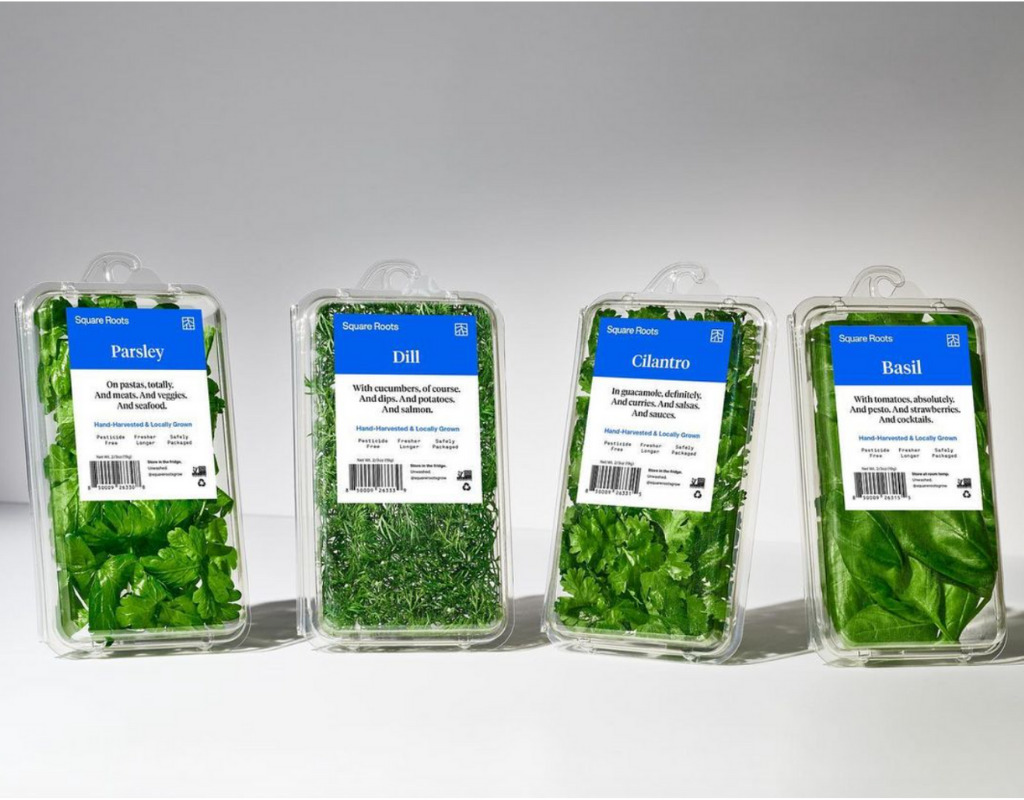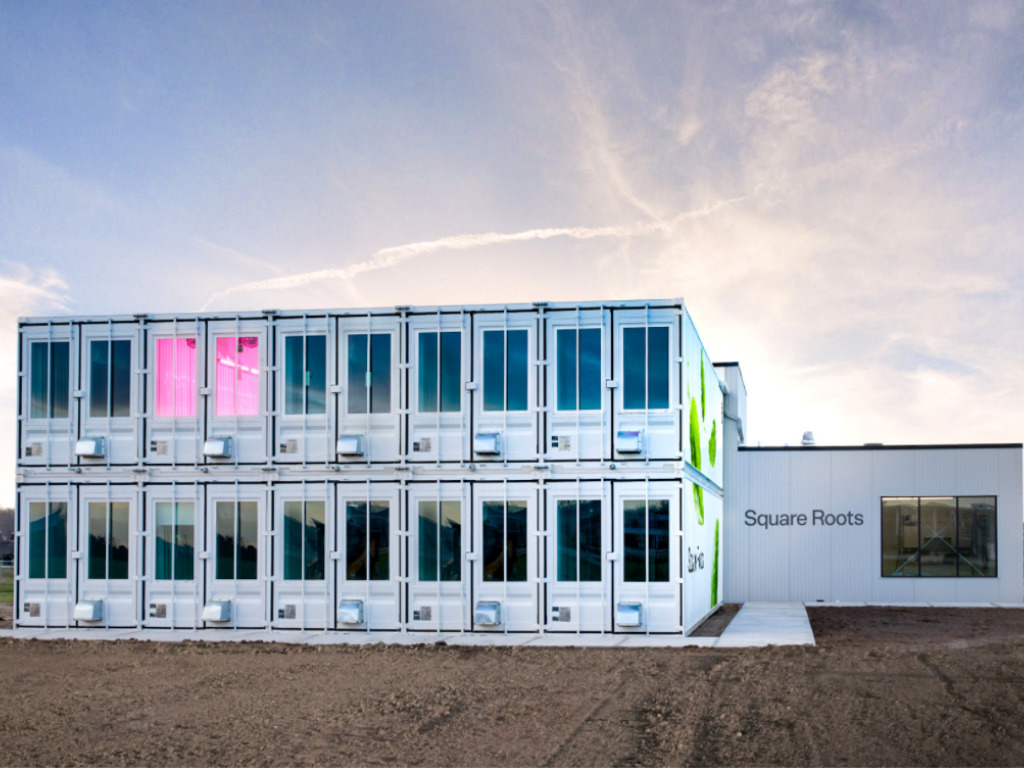4 Mins Read
Indoor farm tech company Square Roots has announced it is expanding its herbs range to include cilantro, dill and parsley, all of which are being grown in climate-controlled modular farms in New York and Michigan in an effort to provide fresh food that is locally grown and pesticide-free to consumers.
U.S.-based indoor urban farming company Square Roots, which uses modular farm technology to not only empower farmers but provide fresh food to consumers, is adding new herbs like cilantro, dill and parsley to its existing offering of basil.
Co-founded by South African-born restaurateur, chef, and entrepreneur, Kimbal Musk, the firm’s herbs are grown across the U.S. in cloud-connected and climate-controlled indoor farms in New York and Michigan, with the new products now available in over 200 retail stores like Whole Foods Market, Fresh Thyme Market, SpartanNash, and FreshDirect.
In a press release seen by Green Queen, EVP of Sales and Marketing at Square Roots, Raji Margolin, said that the pandemic has pushed consumers to embrace locally grown indoor produce. “The habits of at-home cooking and using fresh, local produce are here to stay. Now more than ever, people care about the food they eat, and where it’s grown – and our goal is to make sure that fresh and local food is available to consumers year-round. These herbs are just the beginning of our product offerings and we can’t wait to expand into additional categories.”

COVID-19 has accelerated the adoption of locally grown indoor produce. The habits of at-home cooking and using fresh, local produce are here to stay. Now more than ever, people care about the food they eat, and where it’s grown.
Raji Margolin, EVP of sales and marketing at Square Roots
In addition to this, the firm has a partnership with one of the leading food service providers, Gordon Food Service (GFS) to set up farms across the U.S. that can provide high quality fresh local food all year long to consumers.
In December last year, Square Roots opened its latest farm in Grand Rapids, Michigan, and last month, it was able to start planting seeds in the farm, a rapid development it owes to its modular farm-tech platform. This platform helps the firm open a “Super Farm” with 25 climate containers, that help maintain the optimal level of conditions to grow a variety of crops and has everything one needs to manage a farm at full scale, all set up in just three months and can manage to do so in the same zip code as that of the consumer. Additionally, this system uses no pesticides and 90% less water than outdoor farms.
Given that the farms are cloud-connected, The Square Roots Farmer Toolbelt is set in place to gather data points that analyze how changes in the indoor environment affect the final product. For its farmers, it aims to provide a deeper understanding of their personal impact on the business as a whole through the Next-Gen Farmer Training Program.
We surround our farmers with data, tools and insights to help them grow more, better tasting food with fewer resources. At the same time, with features like our unique Transparency Timeline, we help our consumers understand exactly where their food comes from and who grew it
Tobias Peggs, co-founder and CEO at Square Roots

Read: From Rooftop Gardens to Microgreens: Hong Kong’s Urban Farming Pioneers
Co-Founder and CEO at Square Roots, Tobias Peggs, said: “We’re using technology a little differently at Square Roots farms. Food, farmers and consumers are all connected at the center of our system. We surround our farmers with data, tools and insights to help them grow more, better tasting food with fewer resources. At the same time, with features like our unique Transparency Timeline, we help our consumers understand exactly where their food comes from and who grew it.”
The company’s Transparency Timeline aims to help consumers trace where and how their product was grown and even details on who grew them, thus establishing a deeper connection with your food.
Elsewhere, brands, as well as countries, are understanding the potential that urban farms have and are investing in the same to boost local food production and achieve food security. For instance, back in September of last year, nine urban farms in Singapore were given a grant of S$40 million (US$29.3 million) that will help these farms scale their tech-forward solutions like AI to grow fresh vegetables and fruits.
Even experts in the field are supporting indoor farming solutions, like David Lee who was the former chief financial officer at the plant-based company Impossible Foods, joined agri-tech startup AppHarvest as president to help achieve the firm’s ambitions of becoming a ‘sustainable foods company”.
Another indoor vertical farming firm AeroFarms received support from black check company Spring Valley Acquisition Corp. as it signed a merger deal to go public bringing in around US$357 million, and lifting the firm’s valuation to US$1.2 billion, resulting in AeroFarms achieving unicorn status.
Square Roots’ new herb range is available in both the New York City area and the Great Lakes Region.
Lead image – Square Roots’ latest indoor farm in Michigan, courtesy of Square Roots.



